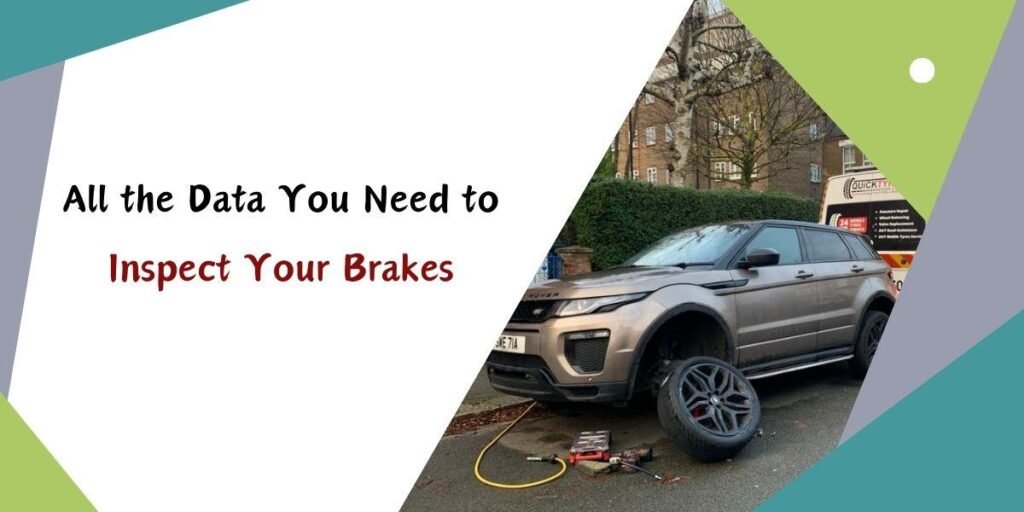The brakes are among the most essential parts of your car. By getting frequent checks, you may drive more securely and avoid collisions. Do you have the question, “How do I check my brakes?” And, “Where can I get my brakes checked near me?” You’re welcome to be present here. Read the following guidelines to ensure that your brakes are operating correctly.
Why you should check your brakes
Your automobile will not collide with anything thanks to its brakes. You might not be able to stop in time if your brakes aren’t operating correctly. When brake components wear out, replacements must be made. Failure to inspect your brakes puts you at risk for injury. Get brakes checked and verify that your car can stop quickly and safely.
How to Tell Whether You Should Get Your Brakes Inspected?
What is the appropriate time to do a brake inspection? Here are some symptoms to look out for:
- Is there a high-pitched sound made while applying the brakes? Pads may become worn out.
- The most common causes of this noise are entirely worn brake pads and metal parts grinding against one another. You risk your brakes not working as well if you do this.
- Brake pads that are cracked or uneven may cause your car to shake or rattle when you use the brakes.
- A braking issue will most likely be blamed if your car stops more slowly than usual.
- Check your brakes immediately if a safety light on your dashboard flashes.
It’s okay if you do your brake checkup.
If you are wondering how to check your brakes remember that it’s relatively easy to execute a home brake check. Be mindful of the sounds. When you apply the brakes, there should be noises like squeaking, yelling, or grinding.
- Check the brakes’ effectiveness: Check your wheel’s spoke-to-spoke spacing. Brake pads should be pressed against the wheel to ensure proper alignment. You should get some new ones if they seem skinny—less than ¼ inch.
- Note how it is trembling: Examine whether your car wobbles or sways to one side when you depress the brakes. You should get your brakes serviced.
- Check the brakes yourself: Apply slight pressure on the brakes when the car travels at a modest speed. We will check the brakes. If stopping seems to be taking more effort than usual or your brakes seem mushy or squishy, it could be time to repair them.
How often should you have your brakes inspected?
You should have a brake inspection every year, regardless of how often you drive. Due to wear or heavy driving, your brakes should be inspected more often. If you are searching for “check my brakes near me” there are several options available.
How the Brakes Work
You can adequately repair your brakes if you understand how they operate. A network of pipes and tubes distributes brake oil to the brake levers when the brake button is hit. Why are the interior surfaces of your wheels rounded? Their name is derived from their contact with the brake pads. This two-object collision has caused your car to go more slowly.
How to Make Your Brakes Last Longer
To extend the brakes’ lifespan, follow these recommendations:
Wheelchair Ramps: A detailed guide for UK
- Simple to use: Steer clear of sudden starts and stops. Gradual braking increases the load on the wheels and brake pads.
- Drop a couple of pounds off your weight. If your car is filled with bulky stuff, the wear on the brakes will increase. As soon as possible, cross items off your list.
- Take care not to “ride” the brakes: Pressing the stop button is not necessary if it is not needed. It may degenerate faster as a result of this.
- Take care of the brake fluid: Add extra oil and clean the brakes if needed.
What transpires when the brakes are inspected?
Your brakes won’t work to their full potential if the brake fluid is low or unclean. You should expect a thorough inspection when your car has brakes checked. They typically concentrate on the following areas:
- Both brake pads and shoes: If you have fragile brake pads or shoes, people will take them off to see if you’re wearing them.
- Rotors and Drums: We’ll check to ensure the rotors and drums are in good condition.
- The brake fluid in vehicles: The amount and quality of the brake fluid will be examined. We will add more or change the fluid’s chemical makeup if more is needed.
- Brake Lines: We’ll examine the brake lines for fractures or other damage.
- Cylinders for wheels and calipers: There will be a check to ensure the calipers and wheel cylinders operate correctly.
Regularly inspect the brakes on your car to ensure it remains in good operating order. Always check your brakes are properly functioning, and be aware of wear symptoms. Following this will allow you to drive safely. It is always essential that the brakes are in good operating condition, whether you decide to handle the inspection yourself or hire a specialist of 24hr Mobile Tyre Repair London. Always be confident to have your brakes tested if you’re unsure. Enjoy your journey!



More Stories
Autonomous Mini Tractors:?Do These Game Changers Work?
Ace Your Theory and Practical Driving Tests
What Makes Driving Courses Effective?